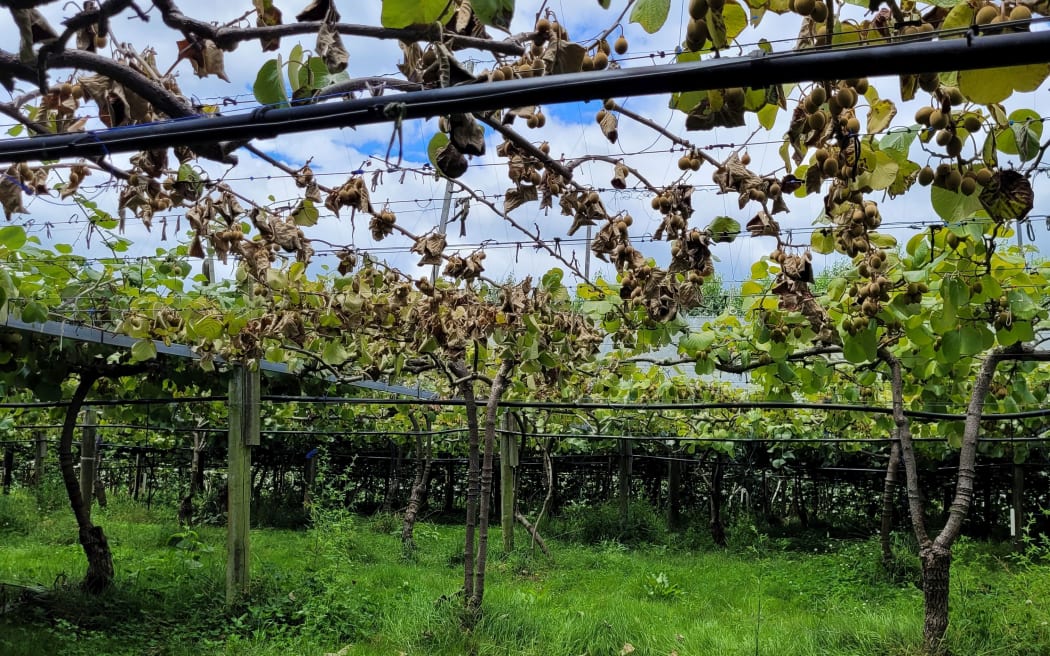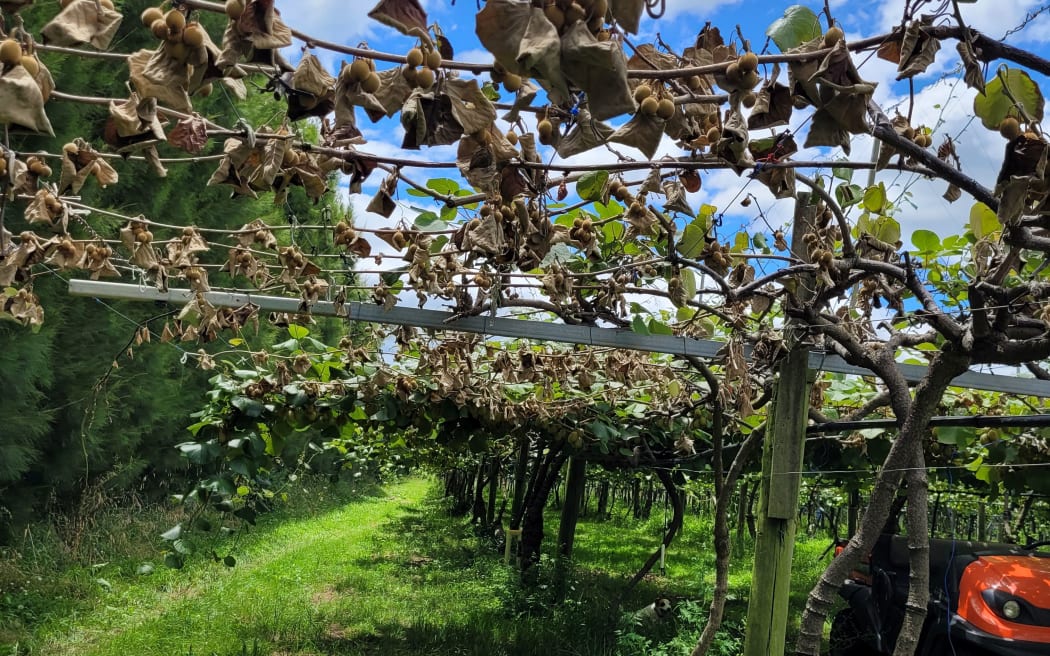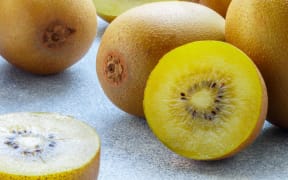
In the worst hit orchards, vines that looked healthy in early summer are collapsing. Photo: Supplied / Tim Tietjen
The destructive claws of Cyclone Gabrielle are still hammering Te Tairāwhiti kiwifruit growers a year after the event.
Vines which looked healthy in early summer are either completely collapsing, leaves are going yellow, or fruit is going soft and shrivelling on the vines.
A few growers are selling their lucrative gold licences and quitting the sector.
The local NZ Kiwifruit Growers kiwifruit representative and orchard owner Tim Tietjen has put a conservative estimate of a $1 million cost to the Tairāwhiti region.
Twenty or so of the region's 50 orchardists appear affected to some extent.
The worst have lost everything, others are removing fruit prior to next month's harvest to reduce vine stress, and per hectare tray production could be halved.
"So they've spent all the money, pruning, doing all the sprays, bees in for pollination, that sort of thing, and then the orchard's just collapsed as the stress has come on. So yeah, a real hit," he said.
Tietjen outlined the position for his business where 20 percent of the orchard will need to be replanted, and a further 40 percent will have about half the normal number of trays.
"I will be down to about six or seven thousand trays (per hectare) so I will be trying to nurse them through," he said.
At that production level his orchard will barely break even.

Twenty or so of Te Tairāwhiti's 50 orchardists appear affected to some extent. Photo: Supplied / Tim Tietjen
He said growers knew vine stress could take time to appear, but this is a massive surprise and right up until Christmas he was cautiously optimistic with good fruit numbers and vines looking healthy.
"But I came back from a short summer break and shocked at what I saw, how quickly things had gone south.
"Catching up with growers there's a lot saying how they're hating going out into the orchard at the moment. It's depressing looking at a whole lot of sick plants, small fruit that's not going to get harvest. So there's concern around mental health for growers and that sort of thing."
Tairāwhiti growers make up 10 percent of New Zealand's total production and for some this is the third tough season in a row.
Tietjen says he knows of two growers who are getting out and from discussions he knows more are thinking about it.
"You can sell the gold licence separately to the land and so there are some older growers who are looking at a five year project just to get back into production so they're going 'hey maybe I'll just sell the licence'."
He said if they do that there is still land to put grapes on it, or graze sheep, or get out altogether, "those conversations are going around at the moment".
Tietjen said on the bright side there is a ready solution with growers grafting onto the rootstock Bounty which copes with wet feet and then dry conditions better than the older bruno rootstock, "so there is still hope".
Grower group NZKGI chief executive Colin Bond said it was a similar story in Hawkes Bay, Eastern Bay of Plenty, Coromandel, Northland and Pukekohe.
Bond said one needed to look behind the headline numbers and at an industry level there is a really exciting year with good yields and a fantastic looking season.
"But you've got to feel sorry for growers who've had two tough years, which most in the industry did, but no one wants a third and unfortunately there are," he said
Bond said it was too early to say what impact the issue will have on total kiwifruit production, forecast to be 193m trays for the 2024 harvest, but it's unlikely to be too significant.


